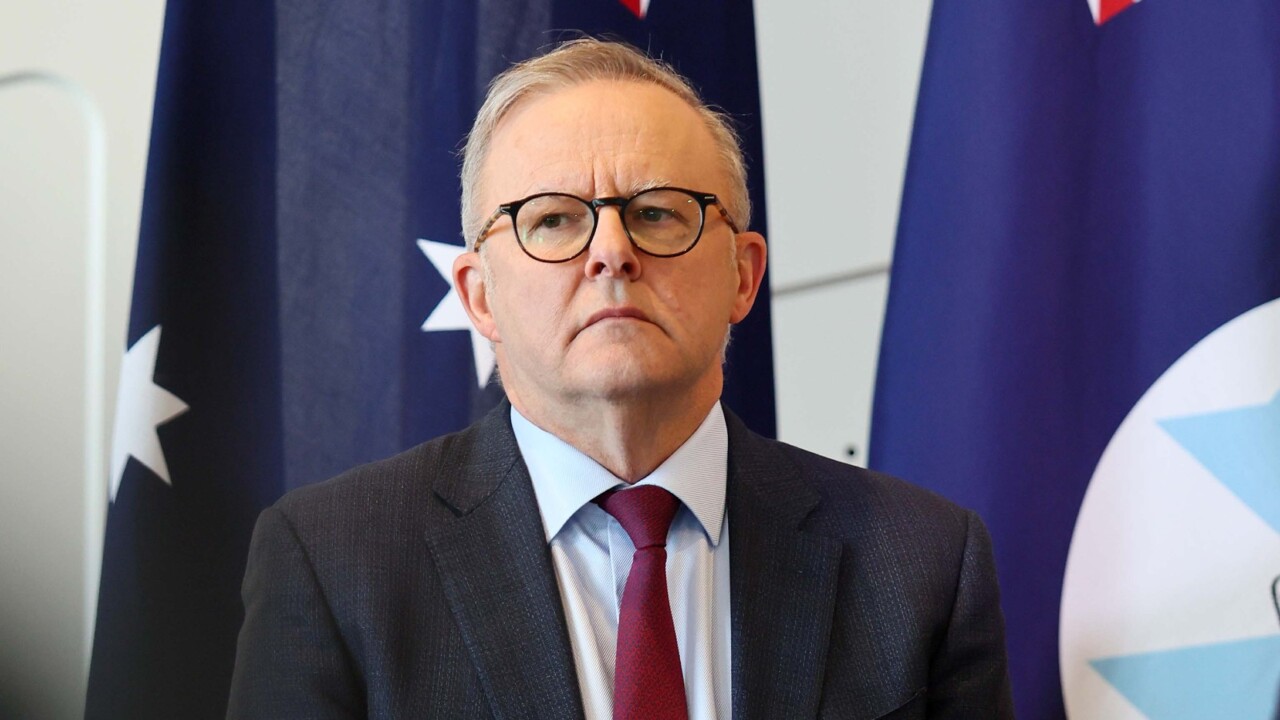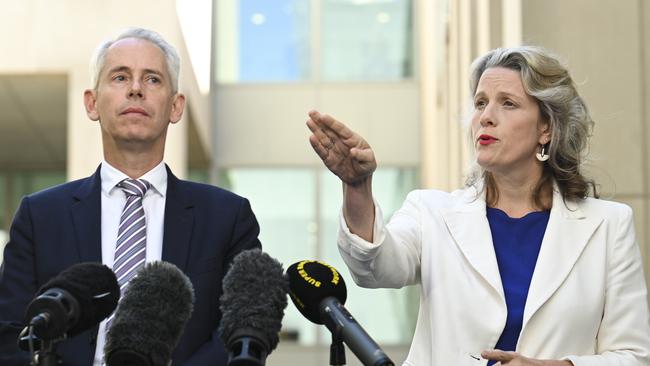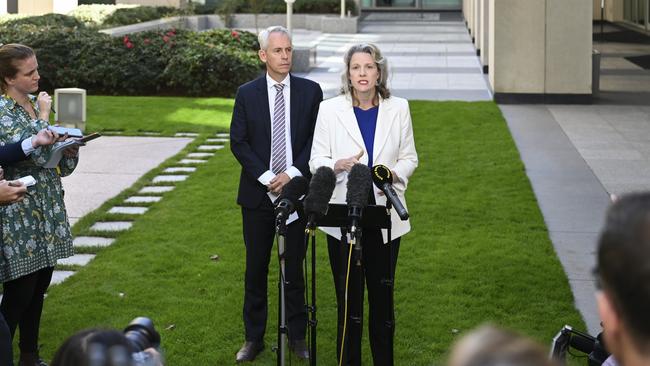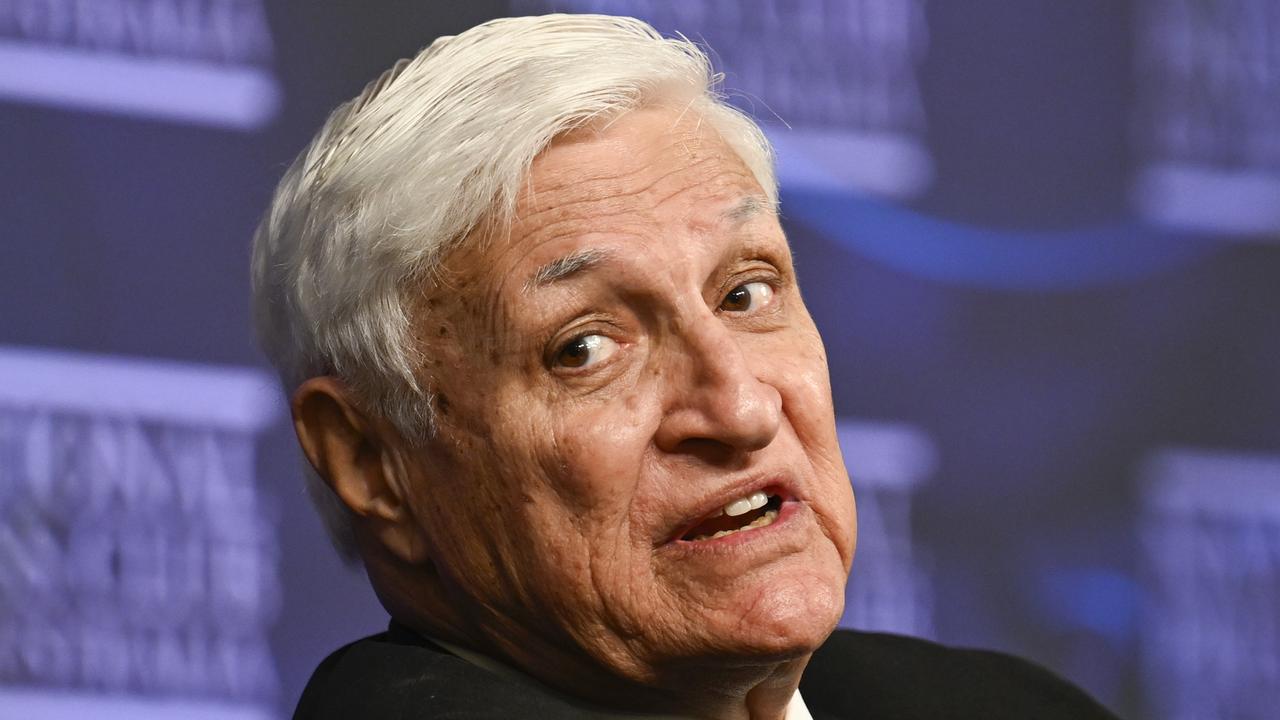Split report opens door to support for contentious detainee laws ahead of High Court showdown on Friday
A suite of new powers that would grant the government the power to effectively blacklist entire countries should be passed, an inquiry has found.

Leaders
Don't miss out on the headlines from Leaders. Followed categories will be added to My News.
Sweeping laws granting the government powers to jail non-citizens resisting deportation and block visa applications from specific countries should be passed, an inquiry has found in a split report.
Labor tried and failed to ram through in less than two days legislation that could result in non-citizens resisting deportation being jailed for at least a year, but up to five years, if they did not co-operate with their removal.
Visa applications from countries that do not accept citizens being involuntarily returned, such as Iran, Iraq and South Sudan, could also be blocked by Immigration Minister Andrew Giles under the Bill.

The contentious laws were sent to a Senate inquiry after Labor was handed a humiliating defeat after the Coalition and the crossbench teamed up to delay the Bill over concerns about its unintended consequences.
In a report released on Tuesday afternoon, Labor senators recommended the Bill be passed should the minister “consider community impacts” when he effectively blacklists entire countries from new visa applications.
The Greens rejected the legislation in full, describing it as “divisive and cruel” legislation that “fundamentally undermines social cohesion in Australia and stokes racism”.
Meanwhile, Coalition senators wrote that while they supported the “intent” of the proposal they had concerns about the “scope of the powers” contained in the legislation and the “lack of sensible checks and restraints”.
It wants 17 amendments made to the legislation but it is still not clear whether the Coalition would support the proposal should the tweaks be made.
The Coalition wants a requirement inserted that assessment must be conducted if a child is the subject of a removal pathway direction and if that is in its best interests, and additional safeguards be considered such as a minimum time for compliance to allow a person to seek legal advice.
The minister should also be required to tell parliament every time a removal pathway direction is issued and the definition of a family for the exemptions to the prohibition on applying for visas be expanded.

The power to declare a country as a removal country of concern (placing them on the blacklist) should be redrafted to require the minister to consider a set of factors (such as the impact on diaspora communities) and be reviewed on a regular basis, potentially by the parliaments powerful intelligence and security committee.
The declarations should subject to sunsetting after three years, should also added, Senators Paul Scarr, Alex Antic and James Paterson said.
Late last year the government rushed through legislation after the High Court’s decision in the case of an individual referred to as NZYQ outlawed indefinite detention.
It triggered the release of more than 150 people, including those who had been convicted of serious crimes such as murder and rape.
The government had wanted to pass the bill considered by the senate inquiry prior to the beginning of another court case of an Iranian citizen known as ASF17.
At the time, Home Affairs Minister Clare O’Neil said: “I think the ASF17 case does show that it is important that we have these powers”.
The High Court will reveal whether non-citizens resisting deportation should be released when it hands down its judgment on Friday morning, which could trigger the release of a further 170 detainees.
The report’s release comes amid a political firestorm over why a former detainee charged with his alleged involvement in a violent Perth home invasion had his ankle monitoring bracelet removed after advice from a community protection board.
The community protection board oversees the management of the more than 150 detainees freed into the community following the NZYQ ruling.
Speaking on Tuesday, Attorney-General Mark Dreyfus refused to say if the government or the board were responsible for the decision to remove Majid Jamshidi Doukoshkan’s ankle monitor.
A government spokesman said the Attorney-General was referring to legislation which “clearly spells out the decision-making powers of the minister and the ability of the minister to delegate those powers – a common practice in a migration system requiring millions of decisions to be made each year.
The legislation clearly shows delegates within the department can and are responsible for bridging visa conditions.
The Community Protection Board is responsible for the advice it provides to the government.
Originally published as Split report opens door to support for contentious detainee laws ahead of High Court showdown on Friday


